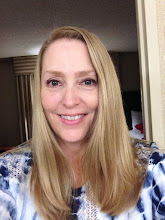A Recap of our six week study!
Things to remember from our Creative Explorers Digital Photography Class:
Getting a Digital Camera
- The higher the megapixel (mp), the better the quality
- Look for OPTICAL zoom, not digital. Digital zoom is the same a “cropping” using the computer. All that does is “pixelate” the picture. It will not look that good.
- The newer easy-to-use “point and shoot” digital cameras today range from 5 – 8 mp, most with a 3X optical zoom. Cameras with 3 mp will give you decent pictures, so don’t feel like you need the highest mp available. Your BEST buy, especially at the “beginner” stage, is a camera b/w 3-5 Mp with a 3X Optical zoom in the price range of $85 - $139.
- Here is a table that shows you the “best” you can expect to print from the various cameras based on megapixels:
Megapixels - Largest “quality” picture printed
2.0 - 4x6 inches
3.0 - 5x7 inches
4.0 - 8x10 inches
5.0 - 9x12 inches
6.0 - 11x14 inches
8.0 - 12x16 inches
·
This table shows approximately how many pictures a memory card for a 5 megapixel camera will hold.
Memory Card - Number of typical pictures for a 5 megapixel camera
128 MB - 48
256 MB - 95
512 MB - 195
1 GB - 395
2 GB - 800
Taking Pictures:
- Frame your shot
- Press shutter halfway to auto-balance image before taking pictures
- Law of Thirds – there should be something interesting in each third of the picture you are framing.
- Set up posed shots
- Avoid boring pictures
- Delete unwanted pictures before the download
- Use your camera’s settings for Action, Landscape, Close ups, flash for more light
Downloading Pictures:
- Use the USB cord and camera to download
- Windows Picture/Scanner wizard and the automatic download feature
- Use folders with names (to help you remember who, what, where, when, and why)
- Clear the camera after the download
- Consider purchasing a memory card reader---the USB method of downloading eats up the battery power of your camera.
- If you will be downloading a lot of pictures, consider an external hard drive to save pictures, or having them burned to CDs. Pictures will use a lot of memory, and will slow down your computer.
You might even consider an “online” virtual storage place, such as “PhotoBucket.com or “Flickr.”
Share your pictures on your computer
- Right click --Open With Windows Picture & Fax Viewer
- Play as a slide show right from your desktop
- Select pictures to print here too - wizard helps you select the size and number of pictures to print.
Editing Pictures
- Free Editing Tools
- Picasa (from Google.com) or Adobe Photo Album
- Autofix features
- Crop features
- Remove red-eye
- Brighten/Darken
- Export to a smaller size (for email or web)
Having Fun with Pictures:
- Bubbleshare
Visit http://www.bubbleshare.com/; set up a free account; upload selected pictures; add transitions and bubbles with text; add music. - Windows Moviemaker (WMM)
WMM is a free editing tool found on all Windows XP operating system computers for images and video
Start--Programs-- WMM; If not there, Start--Programs--Accessories
Import your pictures, and edit away.
When you are finished, save your file as a movie (.wmv file). NOTE—You will need a DVD Burner to save it as a video you can share using a DVD player. WMV files will not play in a DVD player. - Windows Photo Story 3
http://www.microsoft.com/windowsxp/using/digitalphotography/photostory/default.mspx Create slideshows using your digital photos. With a single click, you can touch-up, crop, or rotate pictures. Add stunning special effects, soundtracks, and your own voice narration to your photo stories. Then, personalize them with titles and captions. Free music can be found at http://www.freeplaymusic.com/, though there are some copyright restrictions—read the fine print. Small file sizes make it easy to send your photo stories in an e-mail. Watch them on your TV, a computer, or a Windows Mobile–based portable device.



0 Comments:
Post a Comment
<< Home